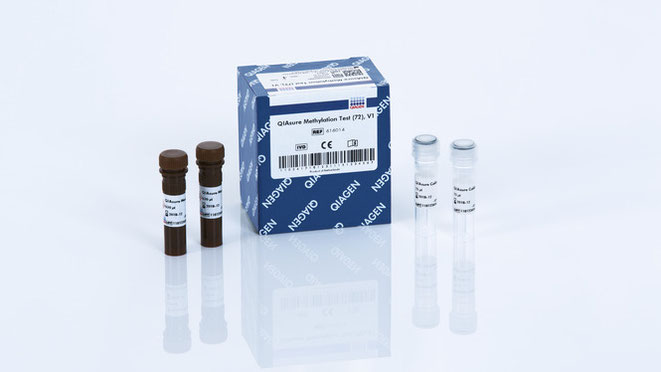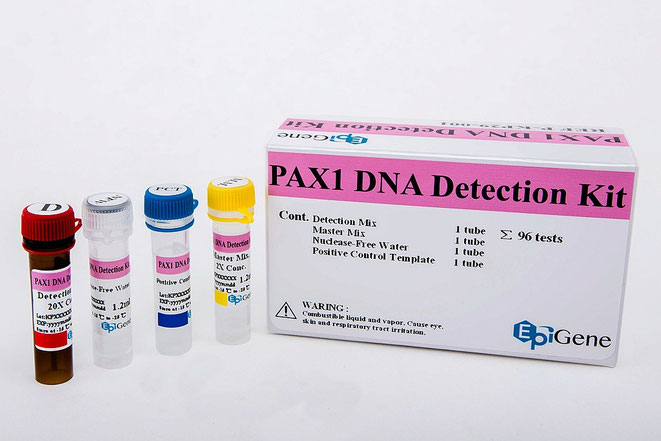Cervical cancer epigenetic diagnostic kits
ASTN1, DLX1, ITGA4, RXFP3, SOX17, ZNF671 GynTect® cervical cancer detection test
In several European countries, such as the Netherlands, Germany, HPV-testing may be used in screening of women aged 30 years and older. Women with an HPV infection will then receive clarification by a suitable triage test, if the infection has already led to dysplastic changes with the potential to develop cervical cancer.
GynTect® allows the detection of epigenetic markers which occur specifically in precancerous or cancer cells. Thus, the test allows to identify among the women with abnormal Pap smear and a positive HPV test result those who may develop or already have a dysplasia that leads to cancer.


QIAGEN FAM19A4, hsa-mir124-2 cervical carcinoma methylation test
The presence of high-risk HPV in epithelial cells in the cervix may result in transforming lesions in some women and hence development of cervical cancer. However, HPV is a common infection and in most cases it does not cause a pre-cancerous or cancerous lesion and is simply cleared by the woman’s immune system. Increased expression of the viral oncogenes E6 and E7 in proliferating epithelial cells drives HPV induced carcinogenesis and results in a transforming HPV infection. The associated cervical precursor lesion, also called transforming cervical intraepithelial lesion or transforming CIN, may ultimately progress to cervical cancer.
This process is associated with the accumulation of epigenetic alterations, i.e., increased DNA methylation in specific tumor suppressor genes. By detecting promoter hypermethylation of the tumor suppressor genes FAM19A4 and/or hsa-mir124-2, women with advanced transforming CIN and hence at a high risk of short-term disease progression can be distinguished from women with productive or early transforming CIN who are at low risk of progression to cancer.

The QIAsure Methylation Test can be used to identify hypermethylation of genes FAM19A4 and hsa-mir124-2 and is a follow-up test for women with a positive HPV DNA test. It is also indicated for use in women who have a Pap smear showing atypical squamous cells of undetermined significance (ASC-US). QIAsure Methylation Test is able to detect CIN 3 at a high risk of short-term progression and cancerous cells with a higher sensitivity compared with cytology or HPV 16/18 genotyping.
As the QIAsure Methylation Test also has low sensitivity for CIN with low short-term progression risk, it can be used in triage to distinguish women who would benefit from increased surveillance from those who need immediate colposcopy.


Cervi-M® cervical cancer methylation test
Cervi-M make the reliable detection of methylated biomarkers in smears from the cervix for detecting cervical cancer or its precancerous lesions. Data generated from multicenter clinical trials demonstrated that the PAX1 DNA Methylation assays are excellent tool for the detection of cervical cancers graded CIN3 and above. The assay generates clinical sensitivity and specificity of more than 80%, when used with the Pap smears.

